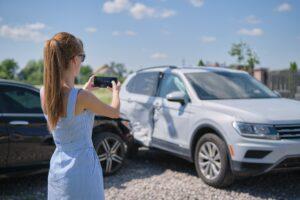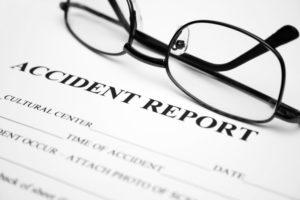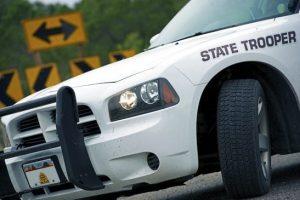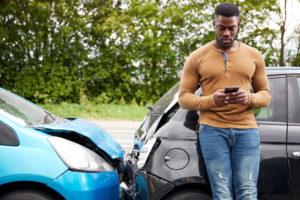
After a surprising collision, the last thing on most accident victims’ minds is collecting evidence in case you have to file a lawsuit against the driver who hit you. However, the most successful car accident settlement stories usually have one thing in common—solid evidence proving what happened and how bad the accident was.
If you think you might have to file an accident claim, you are probably wondering how to prove fault. Here are some of the most common questions people have about preserving three types of proof of evidence after a car accident.
Photographic Evidence
We’ve often heard the expression that a picture is worth a thousand words. This tried-and-true adage rings especially true at the trial of a car accident injury case when the picture in question is of the plaintiff’s vehicle following a collision. Such photographs often serve as the prism through which jurors view all of the other evidence in the case.
RESOURCE: The importance of photos after an accident.
How do You Photograph an Accident Scene?
Take wide-angle pictures that show the angles of the vehicles involved. Also, take close-up shots of injuries, skid marks, and property damage. If the accident happened because a driver broke a traffic law, take photos of streetlights, speed limit signs and other traffic markers. You will want your pictures to tell the story of the accident.
Do Police Take Pictures of Car Accidents?
It depends. Police may take pictures if they feel the photographs are relevant to the investigation or violation; however, there is no rule requiring them to photograph every accident scene. To be careful, it is best to always try to take your own pictures once you have received the necessary medical attention.
If your injuries do not allow you to take pictures, you can ask someone on the scene to handle it and exchange information. Alternatively, a passenger in your vehicle may have the opportunity.
You should also note any businesses nearby. They may have surveillance cameras that recorded the crash. Traffic cameras might be another way to catch the collision on film. However, there is often only a short time to collect this video before it is recorded over. If you believe there is a possibility of video, you should enlist the help of an attorney and tell them about it as soon as possible.
For a free legal consultation, call 800-537-8185
Accident Information
In addition to photographs, you will want to gather essential information about the scene, witnesses, and any police investigation. This can play a crucial role in your case. However, it is vital that you put your health and well-being first. If your injuries are serious, you may not have the opportunity to speak with anyone else on the scene. This is OK. You need to get to the local emergency department for treatment right away.
What Details Need to Be Exchanged in a Car Accident?
You are required to prove your identity and car insurance status. If other drivers involved in the accident refuse to do this, inform law enforcement immediately. Of course, the first thing you should do following a crash is ensure you are not in danger of any additional injuries and dial 911. The call center should dispatch first responders including law enforcement.
If the other driver will not offer their information to you, the police officers who respond to the scene can likely convince them to do so. If not, the police will handle the situation from that point. The other driver’s identity, insurance coverage information, and contact information will be in the police report.
What does a Police Accident Report Contain?
A vehicular accident report will contain a large amount of information necessary to pursue your personal injury claim, such as information about the other driver, the road conditions, and any violations the officer believes occurred. Law enforcement will usually talk to all involved parties and write a statement at the end of the report.
The crash report filed by the responding officer or officers is often a crucial piece of evidence in a car accident claim or lawsuit. It may take several days for the officers to finalize and submit it. Once they do, you can obtain a copy through the agency in most cases. Alternatively, your attorney will handle this for you.
RESOURCE: What if the police don’t show up?
How do You Gather Details from Witnesses?
Eyewitnesses often see critical details that people involved in the crash do not notice. For example, they may have seen the at-fault driver run a red light, and their testimonies could help your attorney prove liability and negligence. According to the Department of Motor Vehicles, you should collect witnesses’ names and contact information at the scene.
Ask each witness for contact information and if they would be willing to write a statement about what they saw. You can record this information in a notebook or by using the voice memos app on your phone. Modern technology has made it much easier to gather information at the scene of a crash. You can even take pictures of their driver’s license or save their phone number in your contacts to exchange contact information.
Other Evidence
In addition to photographs and identifying information, you may need to collect other evidence to prove fault, liability, and damages.
Can You Repair or Junk Your Vehicle Right Away?
You should consult a personal injury lawyer before you repair damage to your vehicle or have it junked. Your attorney can make sure there is documentation of the damage, which may strengthen your claim. You will also want to gather evidence of any recent repairs or upgrades as this could increase the value of your vehicle.
What If the Accident Was Caused By Mechanical Failure?
If you think a mechanical problem in your car or the other driver’s vehicle caused the accident, you will want to try to save the defective part. You can discuss this with your mechanic or body shop, and they should be able to help.
If the defective part was on the other driver’s vehicle, you should contact an attorney to learn more about how to notify the other driver they have a duty to preserve this crucial evidence. They should want to cooperate, since this could allow them to push the liability onto the parts manufacturer, but this is not always the case.
How do You Prove Your Injuries?
Keep all medical records related to the accident. These include bills for doctors’ visits, X-rays, surgeries, rehabilitation, special medical equipment, and other expenses. These documents can help your injury lawyer quantify your economic damages, which could increase the final settlement.
Your attorney will also have access to medical experts and others who can make statements confirming your prognosis, future medical needs, and more. This can be especially important if you require ongoing or future care related to your accident injuries.
How do You Prove Lost Wages or Other Economic Losses?
If you have to miss work, be sure to document this fact. Especially if you are self-employed, it is important to document lost opportunities to work. If you have to hire someone to help with household services like lawn mowing, record this evidence as it may be recoverable as part of your car accident injury claim.
Lost income and loss of services expenses may not seem as pressing as the expenses you might have to pay out of your own pocket, such as medical bills or car repairs. However, these losses can add up quickly and will increase your financial stress. Recovering compensation for them ensures you are not losing money because of a crash you had no hand in causing.
RESOURCE: Got a teen? Talk to them about the risks of driving!
Click to contact our personal injury lawyers today
Have You or Someone You Love Been Injured in an Accident?
If you were injured in an accident, contact us for a free case evaluation. We will work with you on a contingency fee basis to gather evidence and prove your case. You may be eligible to file a claim for medical costs, emotional distress and further damages.
Fill out our free case evaluation form to see if you are eligible for a claim. An accident attorney at the Morris Bart law firm will assist you in the evaluation process. Initial consultations are free. We have office locations throughout Louisiana, Mississippi, Alabama, and Arkansas.
Call us at 1-800-537-8185 today.
Questions?Call 800-537-8185
to find a Morris Bart office near you.





